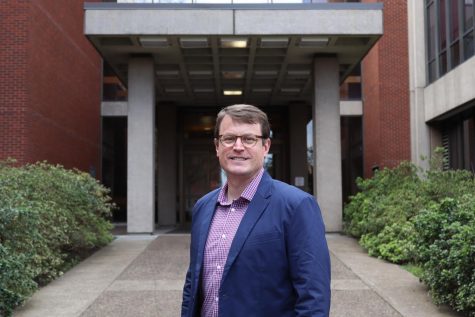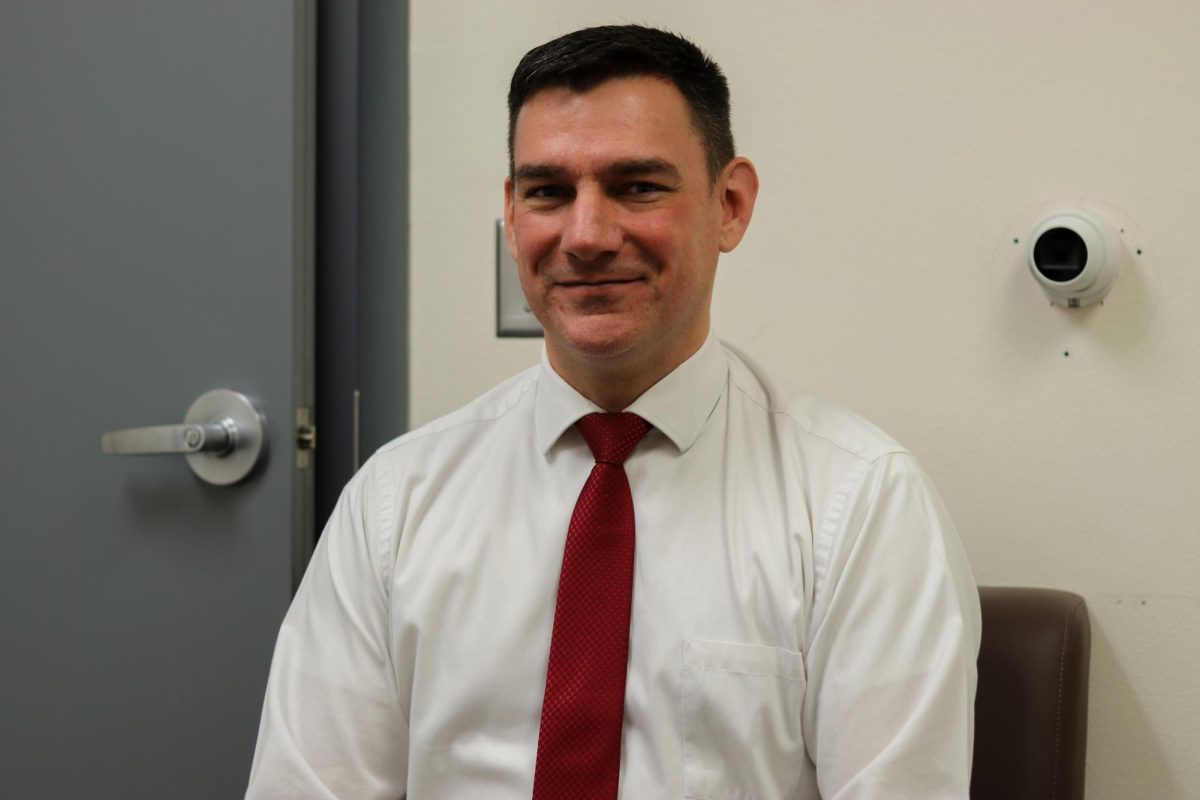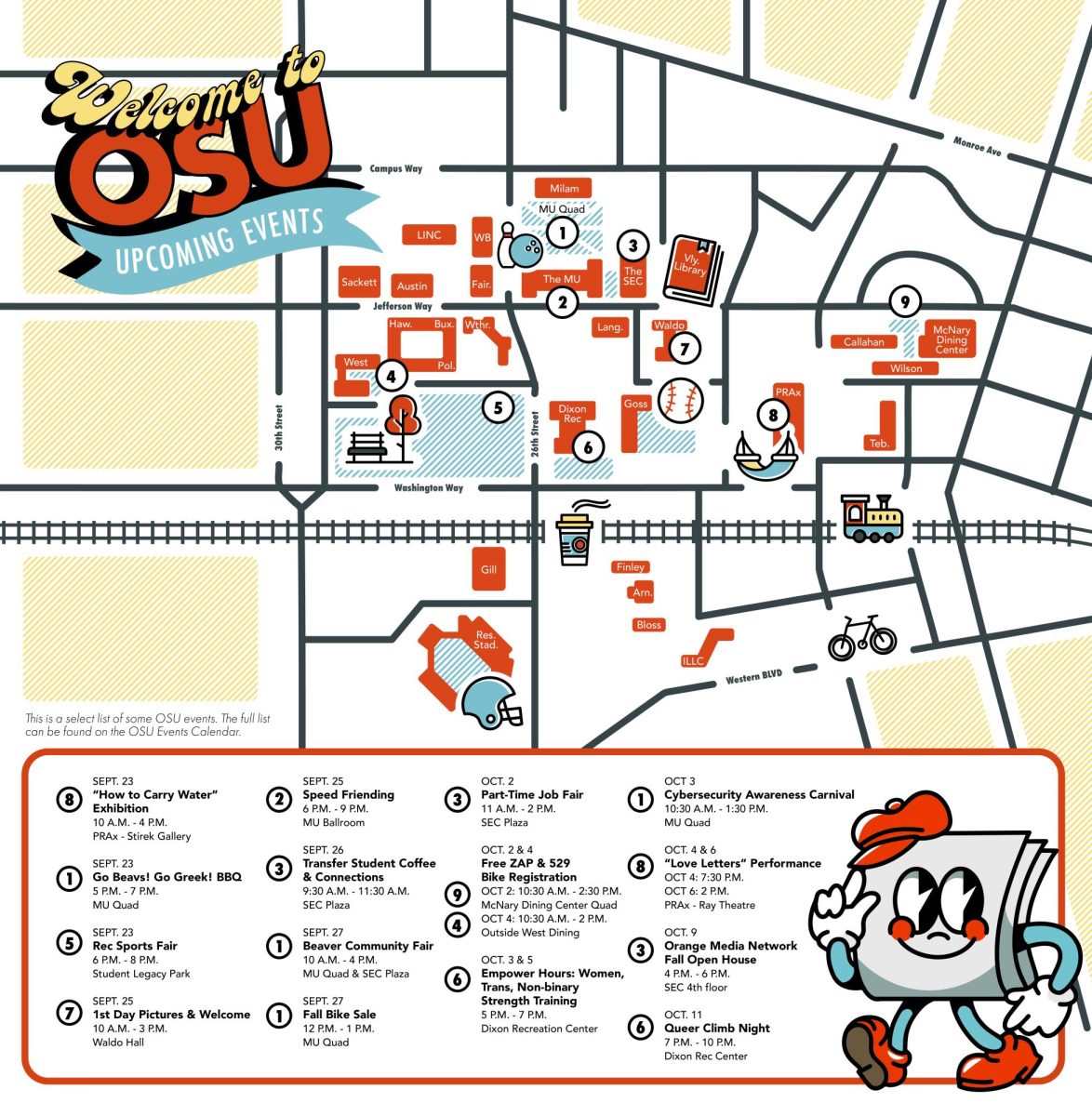The sullen gray of an Oregon day hangs overhead. You barely notice the light drizzle falling from the sky while heading back to your apartment complex.
Approaching the door, you find a notice taped next to the handle. You fear the worst.
It’s a notice of eviction. You couldn’t pay your rent.
If this has happened to you in the past few years as a student, you are not alone.
The increasing costs of tuition, rent and food may be contributing to student stress levels. According to US News and World Report from March 2023, 66% of college students said they were experiencing stress and 51% reported feeling worry “during a lot of the day.”
Graduating, for some, has become as much about balancing budgets as it is about performance in the classroom.
For students facing financial difficulties, there are resources available at Oregon State, such as the Basic Needs Center, scholarship office and upcoming Finish in Four program.
The Basic Needs Center, which is found at Champinefu Lodge, 1030 SW Madison Ave., brings to students the means to lessen their difficulties with services such as laundry machines that can be used once per week. While cleaning their clothes, students are welcome to use the building’s space to do homework.
More information about the Basic Needs Center’s laundry services can be found on their website.
In addition to this, the BNC provides a textbook lending program to help cash-strapped students save money at the bookstore. The center also supplies graphing calculators, chemistry kits and lab goggles to make the school experience more manageable. The center on top of this provides Tophat course codes to students in need.
To learn more about textbook lending, chemistry kits and other academic resources, visit their website.
The BNC offers food support, including helping students sign up for Supplemental Nutrition Assistance Program, as well as Mealbux, which can be used to purchase food at campus locations and restaurants where Orange Cash is accepted. The BNC has a food pantry that low-income qualifying students are welcome to make use of.
To learn more about Mealbux or the food pantry, visit the BNC’s page for both programs.
The BNC’s list of resources includes help for first-generation college students through TRiO, a federal outreach program which provides assistance to students from disadvantaged backgrounds.
Finally, the BNC can assist students facing homelessness, imminent homelessness or eviction. For homeless students, programs exist, through partnership with University Housing and Dining Services, that offer free short-term housing. These services are restricted to fee-paying students, and more information is available on the BNC’s website.
The university is also preparing for the rolling out of its Finish in Four program, which will provide students who are Oregon residents with high financial need renewable, four year scholarships which aim to help students graduate with little to no debt, according to the program website.
The Finish in Four program will help students plan for their degrees by working with advisors to devise academic pathways that allow students to plan their education so that they can graduate in four years.
This program is planned to begin in the fall of 2024.
It is aimed at reducing the effects of inequity which hampers low-income students’ abilities to graduate, according to the program’s website.
“Currently, students with high financial need and underrepresented students of color typically graduate at rates 10% lower than their higher income peers,” the program’s website states.
OSU Director of Financial Aid Keith Raab works to help students achieve their academic goals with scholarships, “so that they don’t have to spend their all of their time and their effort trying to figure out how they’re going to pay rent and buy books and all that stuff; that instead they have the resources they need to be able to focus on their coursework and achieve the academic goals that they have.”
Raab said that he believes one of the most important things that students should be aware of is the changes to FAFSA which will be taking effect in the 2024-2025 school year. The changes, according to Raab, will make it so that filling out the application “is shorter and it’s easier now.”

Finding the right scholarships is essential to lessening the financial burden of being a student. Raab advised that students become aware of the Oregon Opportunity Grant, which operates similarly to the well known federal Pell Grants, albeit at the state level.
The grant, available to low-income students, notifies Oregon residents about their eligibility after their FAFSA is processed. More information about the Oregon Opportunity Grant can be found at Oregon Student Aid’s website.
Raab, as one of his top pieces of advice to low-income students, recommended applying for all of the scholarships that they can. This can be accomplished through ScholarDollars, the university’s directory for applying for scholarships, and is found at the ScholarDollars website.
Raab’s message was one emphasizing the importance of leveling the playing field for students with economic barriers. Stating his belief that Pell Grants are no longer sufficient for accommodating the needs of low-income students, Raab said that if there were any policy which he could implement, it would be doubling the Pell Grant.
For students who are interested in learning more about the Basic Needs Center, they can be emailed at bnc@oregonstate.edu.
There is also the Family Resource Center, which offers support services for parents, families and employees with children. These services include campus child care services, lactation rooms and services for assistance in obtaining family housing, as well as financial planning services.
In addition to this, the Family Resource Center can help students who are parents locate family-friendly housing on campus, as well as return-to-work support for new parents. Finally, the Family Resource Center offers resources for navigating eldercare.
Visit the Family Resource Center’s website for more information.


















































































![Newspaper clipping from February 25, 1970 in the Daily Barometer showing an article written by Bob Allen, past Barometer Editor. This article was written to spotlight both the student body’s lack of participation with student government at the time in conjunction with their class representatives response. [It’s important to note ASOSU was not structured identically to today’s standards, likely having a president on behalf of each class work together as one entity as opposed to one president representing all classes.]](https://dailybaro.orangemedianetwork.com/wp-content/uploads/2025/03/Screenshot-2025-03-12-1.00.42-PM-e1741811160853.png)





























